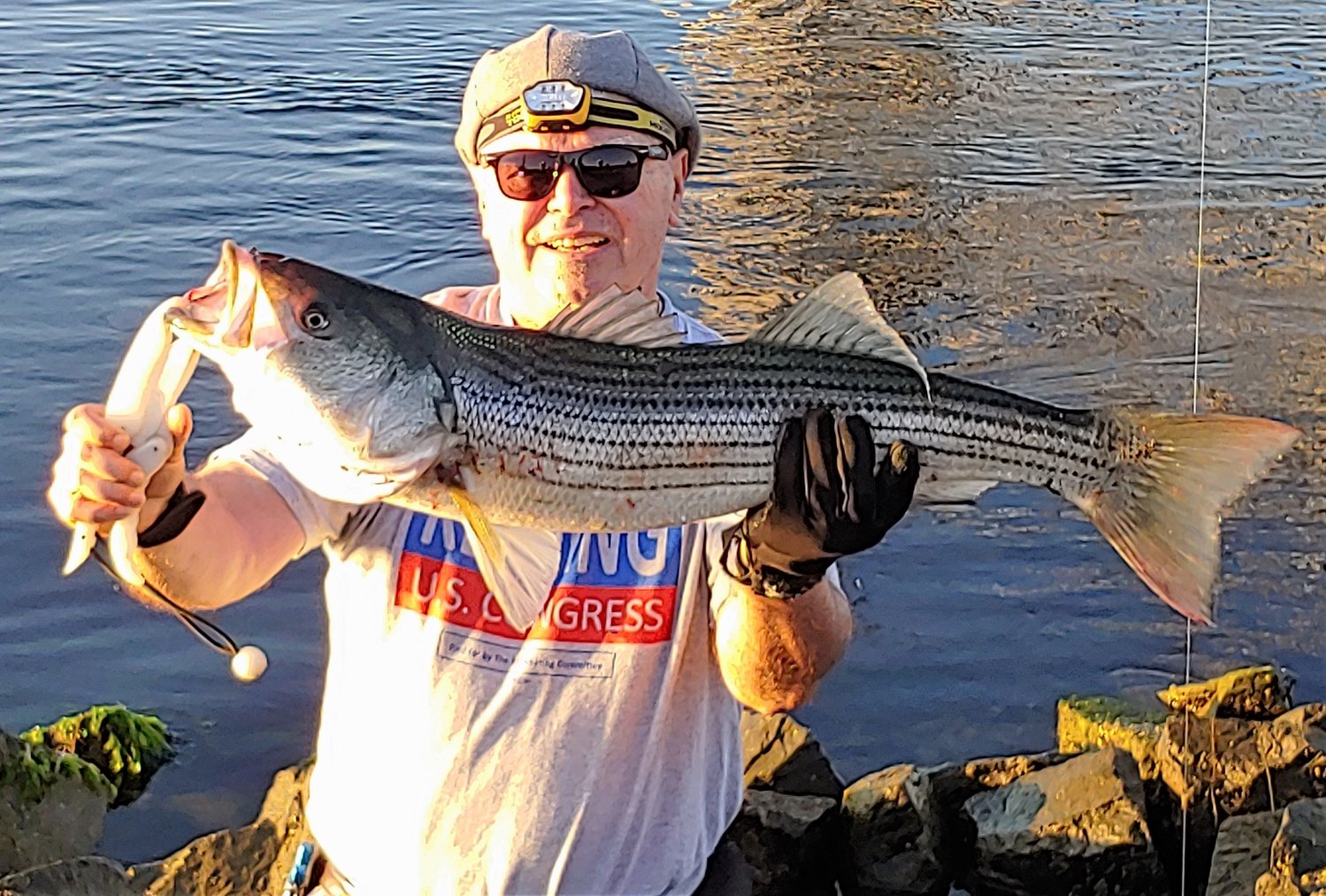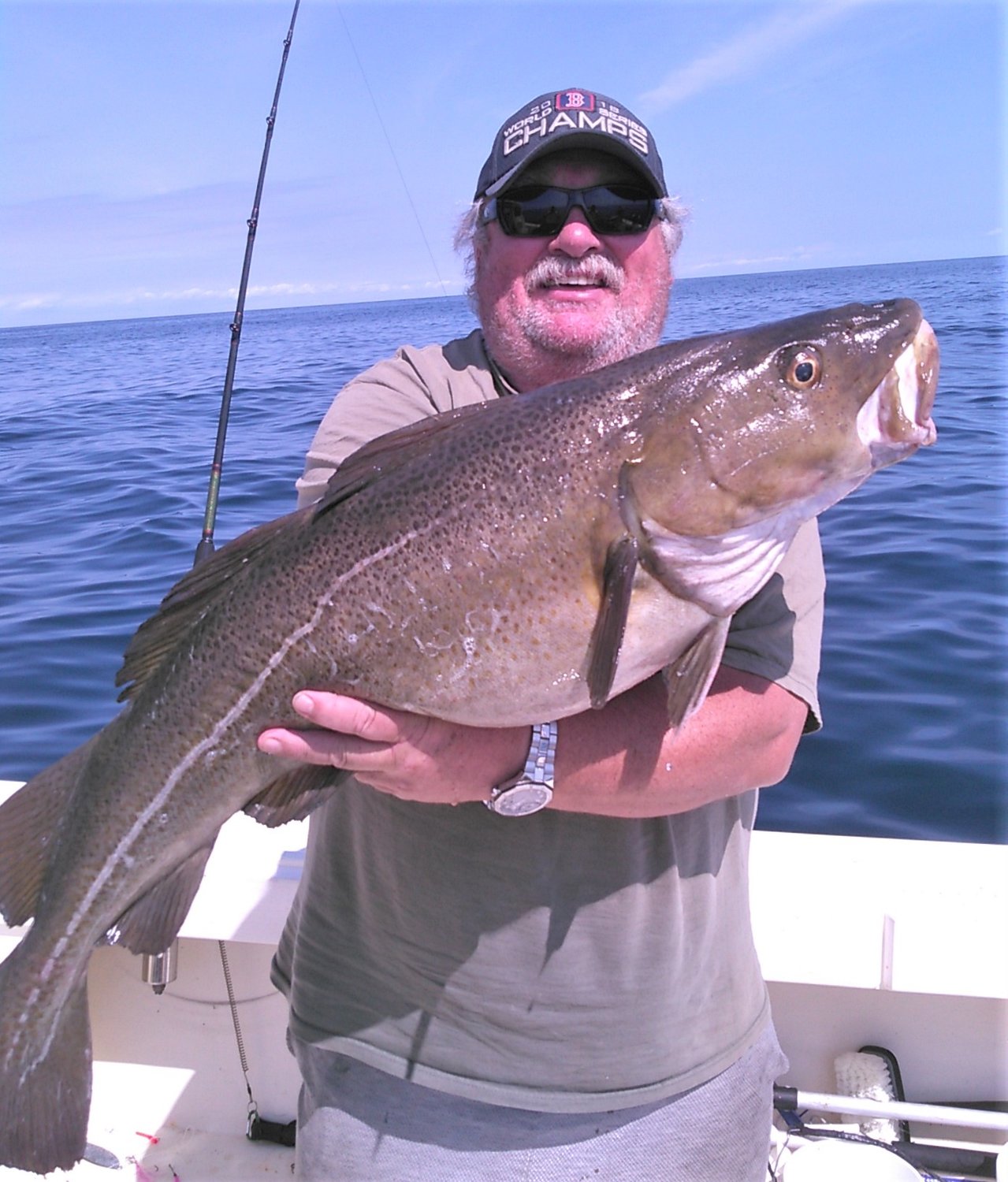Fish first…and do not harm
Everyone who makes a living on the water, or has a passion to recreational fish, gets spirited when it is time to talk about allocations, regulations and harvest limits.
Fisheries decisions can be difficult, regulations can hurt a commercial fishermen, they can prevent a charter captain from making a living, and they can deny access to a fishery to a shore angler.
As a member of the Rhode Island Marine Fisheries Council that makes commercial and recreational fishing regulation recommendations, I and fellow council persons are often faced with difficult decisions, because fisheries resources are limited. And when the resource is limited, who gets fish? This is a decision state and regional federal councils and commissions are faced with every day.
I try to remind myself of three key factors when thinking about fisheries decisions. First, the fish in the ocean belong to all the people of the United States, not select interest groups, fishing sectors, individuals or people just from Rhode Island, New Jersey or the Gulf of Mexico. Even folks living in land-locked Kansas have a right to the fish in our waters.
Second, I try to always put the fish first. Meaning do what is best to rebuild a stock to grow them to abundance so there are more in the water for all of us to catch and eat. Growing fish to abundance often means taking fish off the table so no state or interest group gets to take them because experience tells us if we fish, fish, and fish we can fish a species to extinction.
Third, and most important, do no harm. Do no harm to fellow fishermen, particularly those that oppose your point of view. Express your opinion but in a respectful way that does not attack a person’s point of view personally but rather present your point of view in such a way that is not mean spirited.
We are faced with a difficult decision today about striped bass, the number one recreational sport fish on the east coast. The Atlantic States Marine Fisheries Council (ASMFC) will be taking comments on Addendum VI of the striped bass management plan to determine how to make a mandatory 18 percent reduction in the amount of fish harvest. The reduction in harvest is needed as the most recent stock assessment shows that striped bass are overfished and overfishing is occurring. If we continue to fish at the rate we are fishing the science tells us we will fish the stock to extinction.
The commercial and recreational fishing community are all expressing their perspective on how many fish we should kill and how to divide them. Many strongly believe they have the right answer, the right number to take and how to divide them. Throughout this process I am trying to remember the fish belong to all the people, I am trying to put the fish first as we do not want to fish them to extinction, and trying to do no harm to others.
Angler input on the striped bass Addendum VI management plan options is being taken via public hearings, mail in comments or by email. Visit www.asmfc.org for striped bass stock assessment highlights, Addendum VI options, and instructions on how to send in comments. Public comments accepted in writing or via email until 5 p.m. (EST) on Oct. 7.
Rhode Island had their public input meeting Tuesday. In Massachusetts there is a public hearing Oct. 2, 6 a.m. at the Crowne Plaza Woburn and a second on October 3 at the MA Maritime Academy, Admiral’s Hall, Buzzards Bay.
Seminar on abundant fisheries and all things fish
The RI Saltwater Anglers Association (RISAA) will hold a seminar Monday, Sept. 30, 7 p.m. at the West Warwick Elks Lodge, 60 Clyde Street, West Warwick. The meeting will be preceded by an optional diner served by the Elks Lodge starting at 5:30 p.m. After the seminar attendees are welcomed to stay of RISAA’s quarterly board meeting.
Two presentation topics including the ‘The importance of Abundant Fisheries’ by Capt. Dave Monti, vice chair of the Rhode Island Marine Fisheries Council and RISAA 2nd vice president and a second topic ‘The History of Fishing in Rhode Island” by Peter Fay, fishing historian.
Everyone is welcome to attend the meeting, non-members are requested to make a $10 donation to the RISAA Scholarship Fund, and members attend free.
Where’s the bite?
Striped bass, false albacore and bluefish. The bluefish bite continues to be strong throughout our Bays and coves, with fish ranging in size from small skip jacks to fish in the two foot range. They are pushing bait to the surface and are on top. John Littlefield of Archie’s Bait & Tackle, Riverside, said, “The bluefish bite remains strong, I have sold more plugs for them than I have sold in the last year and half. Anglers are catching striped bass under and around the bluefish with one customer caught a keeper at the month of the Warren River when a school of striped bass surfaced.” Anglers are catching bluefish on the troll as well as with swimming and top water lures. Littlefield said, “For the past week and a half we have had false albacore from Conimicut Light all the way up the Providence River.” Elisa Cahill of Snug Harbor Marina said, “This weekend the false albacore along the southern coastal shore seem to disappear. Hope they are not gone for good. However, the bass bite at Block Island with those using ells (even during the day) is very good.” Fishing outflows as bait comes into bays and the ocean is a good place to find albies as well as places with good water and bait movement.
Black sea bass, scup and fluke. We caught several black sea bass keepers to 21” Sunday fishing off the mouth of the Sakonnet River and early in the week fishing for an hour at Austin Hollow I caught two nice keeper fluke. It was nice to see they were still around, however they are scarce. Black sea bass and fluke still being caught in the Newport bridge area. Scup fishing is still very good in the bay and along the coastal shore with large sea bass a bit harder to find along the coastal shore. Cahill said, “Fluke fishing is just about nonexistent now, it’s hard to find a keeper.”
Tautog fishing continues to improve. Angler Eric Duda reports a strong tautog bite at Sakonnet Point with his largest fish this weekend in the seven and nine pound range using green crabs when there was good water movement. Black sea bass to 4.5 pounds being caught there as well.
Tuna fishing. “We had a great school bluefin tuna bite about 15 miles south of Block Island last week right where the scallop boats were fishing. Anglers experienced some great action on the charter vessel Hot Reels captained by Louis DeFusco last week. They caught 75 to 100 pound bluefin on fluke rigs. But that bite was off this weekend. Many believe the butterfish and bait moved with the heavy seas. They will pop up somewhere else this week.”
Freshwater fishing remains very strong for anglers. “Customer are catching catfish, large and small mouth bass at the Brickyard Pond in Barrington as the water quality there has improved fishing greatly.”
Dave Monti holds a captain’s master license and a charter fishing license. He is a RISAA board member, a member of the RI Party & Charter Boat Association, the American Saltwater Guides Association and the RI Marine Fisheries Council. Follow Capt. Dave on twitter @CaptDaveMonti. He’ll be tweeting about ‘Where’s the bite’, fishing regulations, national fishing policy, and issues that impact the fish. Forward fishing news and photos to Capt. Dave at dmontifish@verizon.net or visit www.noflukefishing.com.









